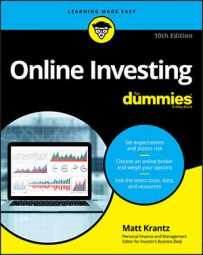When you sell a stock held in a taxable account that has appreciated in value, you usually have taxes to pay. Generally, such capital gains taxes are calculated based the holding period. There are two holding periods:
-
Short-term: That’s the type of capital gain you have if you sell a stock after owning it for one year or less. You want to avoid these gains if you can because you’re taxed at the ordinary income tax rate, which as I explain shortly, is one of the highest tax percentages.
-
Long-term: That’s the type of capital gain result you get if you sell a stock after holding it for more than one year. These gains qualify for a special discount on taxes.
You must own a stock for over one year for it to be considered a long-term capital gain. If you buy a stock on March 3, 2009, and sell it on March 3, 2010, for a profit, that is considered a short-term capital gain. Also, an important thing to remember is that the holding period clock starts the day after you buy the stock and stops the day you sell it. Selling even one day too soon can be a costly mistake.
If you’re interested in cutting your tax bill in a taxable account, you want to reduce, as much as possible, the number of stocks you sell that you’ve owned for only a year or less because they’re taxed at your ordinary income tax levels. You can look up your ordinary income tax bracket on the The Tax Foundation's website.Need an example? Say a stock rose from $10 to $100 a share (for a $90-per-share gain). You had $50,000 in taxable income that year and sold the stock after owning it for just three months. Your gain would fall from $90 to $67.50 after paying $22.50 in taxes.
By owning stocks for more than a year, gains are taxed at the maximum capital gain rate. The rate you pay on long-term capital gains varies based on your normal tax bracket, but such rates are almost always much lower than your ordinary income tax rate, if not zero.
Yes, that’s right, in the 2009 and 2010 tax years at least, some investors’ long-term capital gains were tax free. Long-term capital gains rates, though, can change dramatically due to political pressure. The following table shows the maximum capital gain rates for 2009 and 2010 for typical investments such as stocks and bonds.
| If Your Regular Tax Rate Is | Your Maximum Capital Gain Rate Is |
|---|---|
| 25% or higher | 15% |
| Lower than 25% | 0% |

